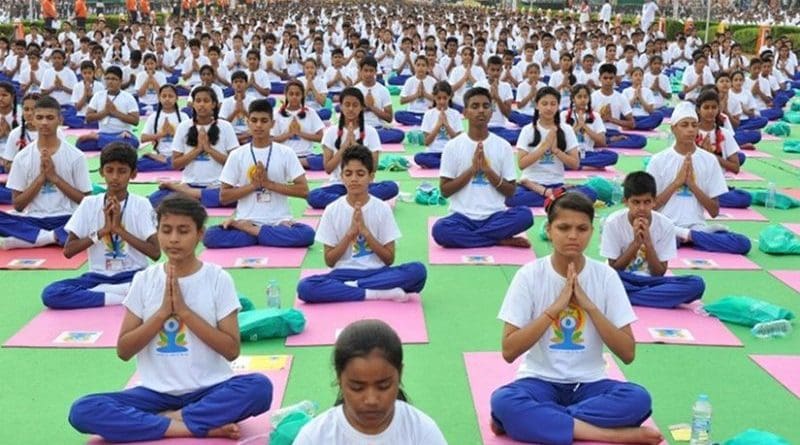Religion, World Politics And India – Analysis
By Observer Research Foundation
By Sriparna Pathak Raimedhi*
The global arena has witnessed several conflicts and wars based on faith throughout history. However, an astonishing feature that is emerging in more contemporary history is the emphasis on religion as part of diplomacy. The examples include India’s emphasis on promoting Buddhism for fostering better relations with countries of the world, China’s promotion of Buddhism to win friends across the globe and the US government agencies engaging religious communities across the world.
With regards to Buddhism, Indian Prime Minister Narendra Modi in his speech to the Mongolian parliament in June this year stated that Buddhism is important in dealing with contemporary political challenges before Asia and the world. He added that “the convergence of Buddhism and democracy provides us a path to build an Asia of peace and cooperation, harmony and equality”. What the Prime Minister probably did not consider was the fact that while Buddhism is the oldest foreign religion in China, the country is anything but a democratic country. The country follows the “socialist system”, as stated in its Constitution and the Communist party of China is the country’s sole political party in power. While China may use Buddhist historical sites for preservation for enhancement of its soft power, it does not necessarily translate into being a democratic country.
Coming back to the issue of mixing religion and politics, political science, of which international relations is a sub set; relies on empirical and logical facts or statements. Empirical and logical statements are capable of verification, and this is in sharp contrast to what political philosophy is about. Evaluative statements are based on individual or group preferences which differ from individual to individual or group to group. Political philosophy is concerned with moral and substantial dimensions of politics. The central pursuits include questions pertaining to norms and values, good and evil, virtue and vice, means and ends, right and wrong and visions of an ideal state and society.
Given this, if Buddhism or any other religion for that matter were to be used as a prism to understand what would be the “ideal society” then it would fall more into the realm of philosophy. The simple reasons being- tenets of faith are not empirical. They depend on the preferences of individuals and groups and are more concerned with the moral. Assuming that a particular religion will lead to a particular kind of society based on ‘democratic’ principles is a grave political fallacy.
That being said, the fact that cannot be ignored while analysing global politics today, religion and matters of faith are increasingly being used as political tools. Even the extremely secular Western European states are acknowledging the resurgence of religion as a force to reckon with in global politics, particularly on their doorstep in West Asia and are attempting to find ways to cope with it. In the era of globalisation, religion is becoming important to respond to and to characterise world order in the age of globalisation.
However, religious organisations dominating national policies are attempting to appear as champions of alternative options by interpreting faith as the divine decree. This challenges the legitimacy and autonomy of the state, political organisations and market economy. This possibly is the reason as to why independent India largely up till now, even while emphasising cultural and historical linkages with countries across the globe kept matters of faith and religion largely out of its ambit. The benefits or the disadvantages of emphasing a particular religion under the Modi government are yet to be seen. However, at the very outset, it needs to be kept in mind that a mixing of religion and politics, be it in the domestic sphere or in the international arena are dangerous- particularly for a secular country like India. The bases of decisions taken while operating on religious reasons are questionable and not empirical to state the least, and need to be handled with great care and diplomatic competence.
*Dr. Sriparna Pathak Raimedhi is an Associate Fellow at Observer Research Foundation, Kolkata, India
Courtesy: www.thethumbprintmag.com

